France-UK plan for European troops in Ukraine falters
Paris and London are struggling to broaden ‘coalition of the willing’ without clear security guarantees from the US.
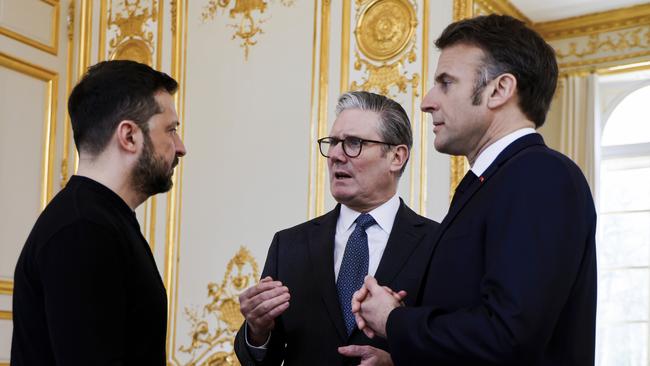
Britain and France are faltering in their campaign to persuade other European allies to send troops into Ukraine to secure any peace deal, amid mounting doubts about the US’s willingness to guarantee their security.
French President Emmanuel Macron convened dozens of leaders, including Ukrainian President Volodymyr Zelensky, inside the Élysée Palace on Thursday in a bid to hammer out an agreement for a European deployment of land, air and maritime forces that could go to Ukraine.
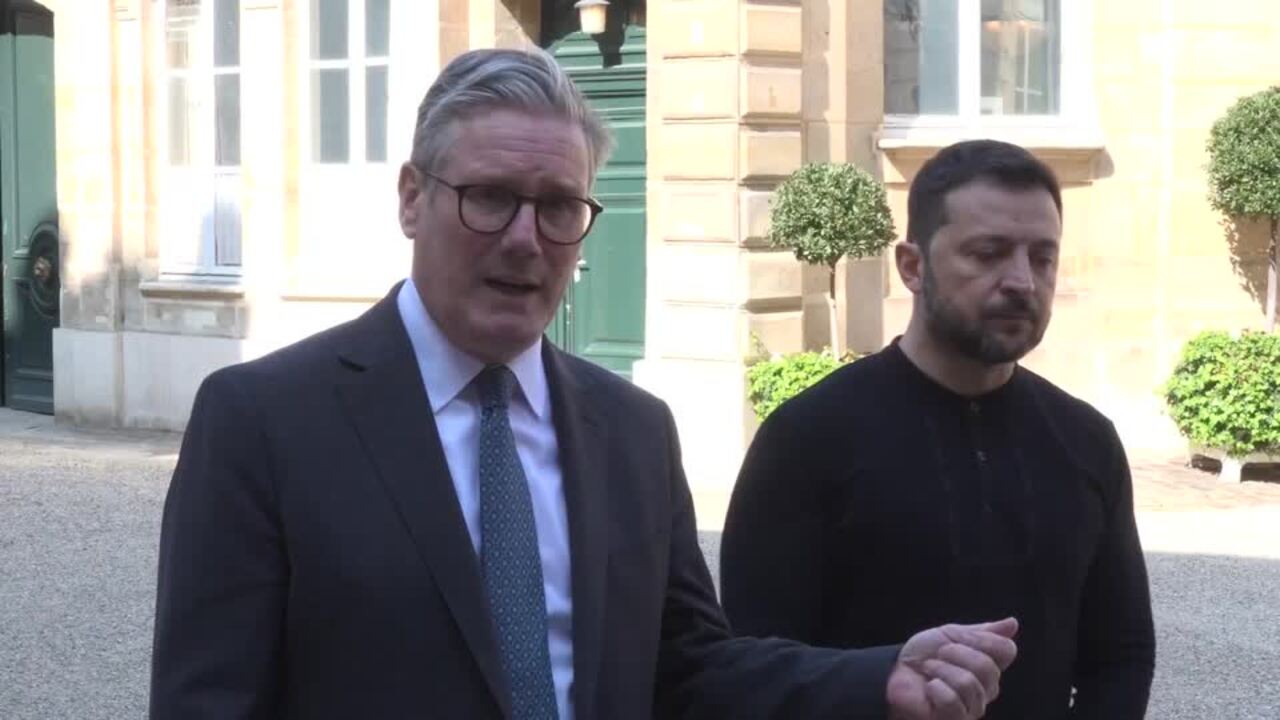
The French leader, however, emerged from hours of negotiations — including a phone call with President Trump — without a public commitment from other European countries to send troops. Macron told a press conference that several countries privately expressed a willingness to put boots on the ground.
For now, he said, the UK and France plan to dispatch a team to Ukraine to determine how many European troops Kyiv needs and where to station them.
Central to the concerns of European countries is whether the US will play some role in supporting a European deployment if it came under fire from Russia. Washington has so far offered no commitment, and some top US officials have dismissed the European plan.
“My wish is that the Americans are engaged at our side,” Macron said. “But we have to be prepared for a situation in which they maybe don’t join in.”
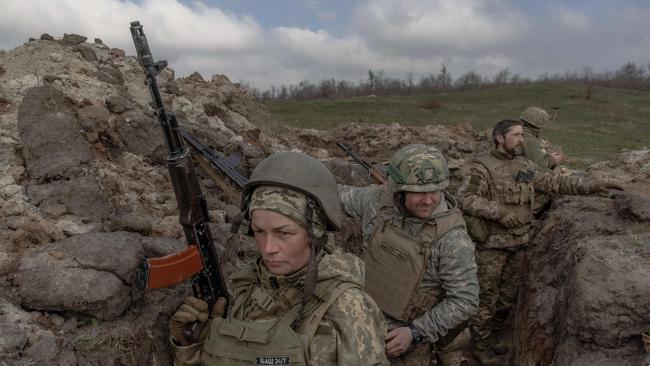
The question of whether European capitals will ever be ready to fill Washington’s shoes as a guarantor of regional security is looming over the continent. European governments are boosting military spending. Germany recently passed a €1 trillion defence and infrastructure package and Brussels is floating a plan that aims to raise €800 billion in defence spending by 2030.
“We are at a decisive moment of our history,” Macron said.
Still, the war in Ukraine is laying bare persistent divisions over how to steer European resources onto the battlefield. The European Union had hoped to provide a €40 billion package for 2025 giving Ukraine additional access to ammunition, missile defence and long-range strike capabilities, but some of the bloc’s member states — including France, Spain and Italy — baulked at the plan.
On Thursday, European countries at the Paris meeting did agree to supply two million rounds of ammunition to Ukraine in the coming months, an EU official said, part of €17 billion in fresh military aid raised so far this year among the bloc’s member states for Ukraine.
Germany’s parliament approved an additional €3 billion for Ukraine military aid this week, and Macron said on Wednesday that France would provide €2 billion in additional military aid this year. Non-EU countries, like Britain and Norway, have also pledged to supply billions of dollars worth of military aid.
Macron had called Thursday’s meeting, which brought together 31 countries, including Canada and Australia from outside of Europe, with the specific purpose of shoring up military aid to Ukraine and defining what kinds of security guarantees European countries were prepared to offer Kyiv.
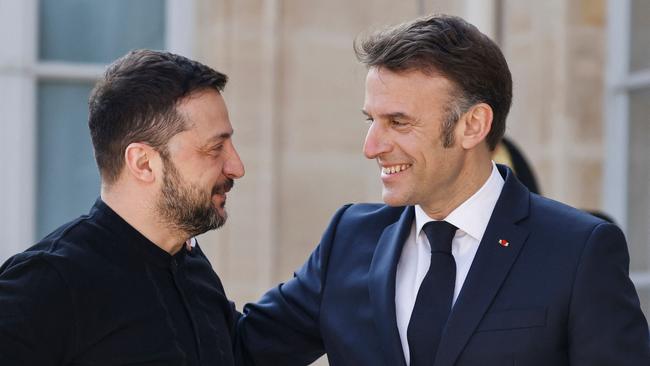
French and British officials see the plan as a means to secure a seat at the negotiating table after the Trump administration largely sidelined European capitals in its talks with Russia. By placing troops in Ukraine, France and the UK aim to deter future Russian attacks while demonstrating to Washington that Europe is prepared to carry the burden of Ukraine’s security.
French officials say they are confident that European countries will provide the maritime and air assets they plan to add to any troops on the ground. There are bigger question marks over finding enough troops to deploy on land.
British Prime Minister Keir Starmer said it remained crucial that Washington would support any deployment and that it remained unclear whether a peace or ceasefire deal will be in place to enable the sending of troops.
“Obviously we don’t know yet whether there will be a deal, what exactly the deal will be like. And therefore politically, what we are requiring is options that are credible.” he said.
As the US-Russia talks have deepened, European officials have been alarmed by signs that Washington is bending to Russian demands.
On Tuesday, the US.= agreed to help Moscow bolster agricultural and fertiliser sales, steps that Russia says will require Europe to relax financial restrictions that sit at the heart of the sanctions regime on Russia. Those restrictions depend on European decisions.
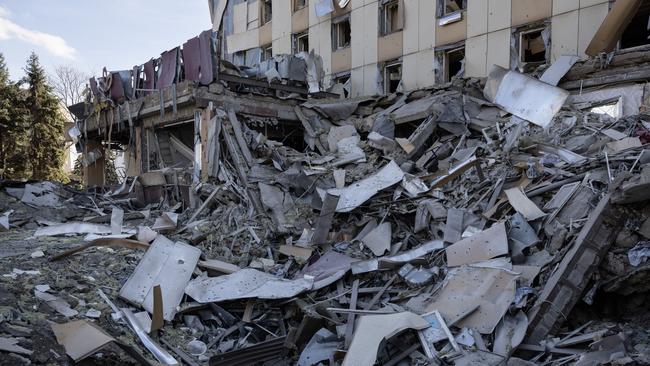
The EU said on Wednesday it had no plan to do so and Macron said in a news conference after the meeting that leaders had agreed that “this was not the time for the lifting of sanctions.”
Nonetheless, European diplomats are wary of being portrayed by Moscow and the Trump administration as obstacles to ending the conflict — a charge that Russian officials have levelled in recent days.
European leaders say it is Russia that is dragging its feet on a ceasefire. Speaking after the meeting, Zelensky said that all the leaders in Paris “understand that Russia for today doesn’t want any sort of peace.”
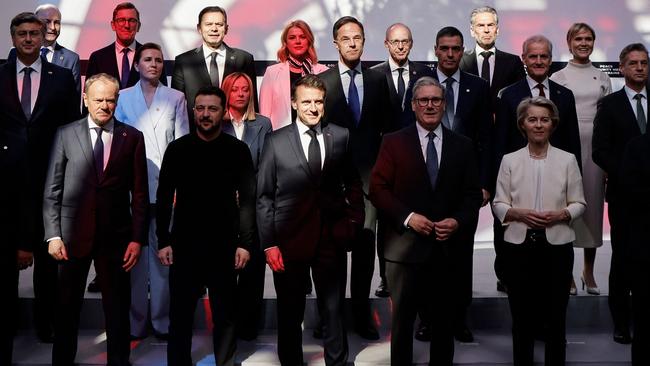
Sir Keir contrasted Russia’s agreement to a partial ceasefire with the Kremlin’s stepped-up bombardments of Ukraine. He said there should be a deadline for Russia to agree to a ceasefire deal.
“It’s over a week since Putin agreed to an energy and infrastructure ceasefire, but since then Russia has hit energy infrastructure in cities across Ukraine,” he said.
In London, a number of scenarios are being studied, from a ceasefire to a full-blown peace treaty. But they all rely on a degree of US support. For instance, even a pause in the fighting along the front line would require US satellites to monitor in real time.
French and British officials have said they also want US missile defence systems to back up any troops they place in Ukraine, as well as logistical support like midair refuelling and troop transport planes.
Wall Street Journal






To join the conversation, please log in. Don't have an account? Register
Join the conversation, you are commenting as Logout